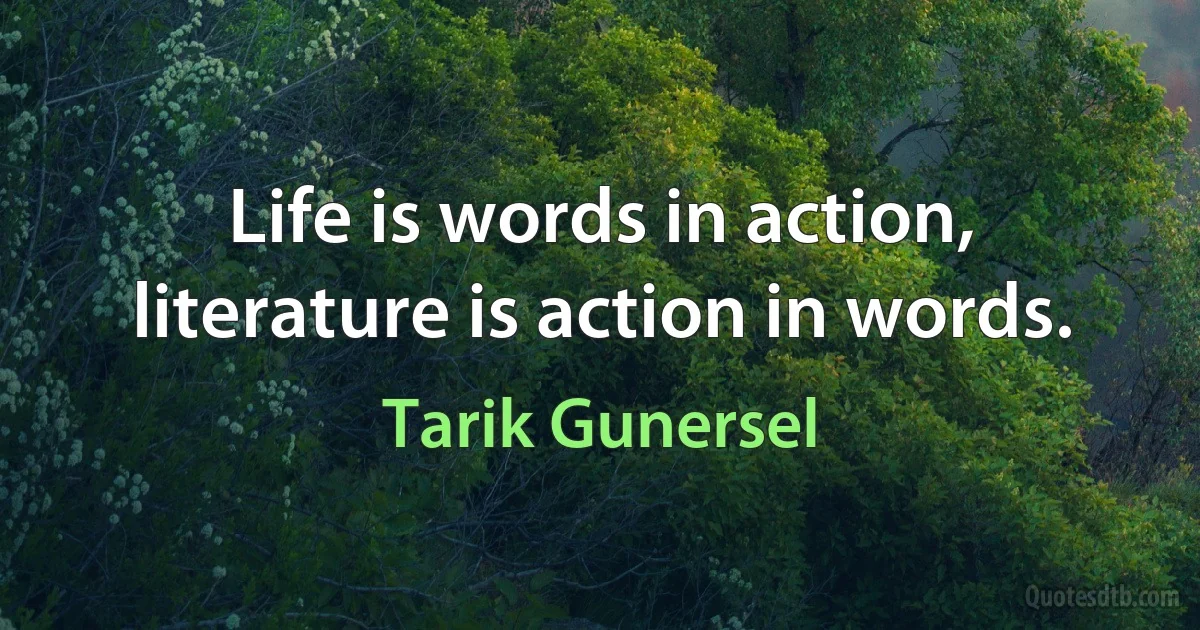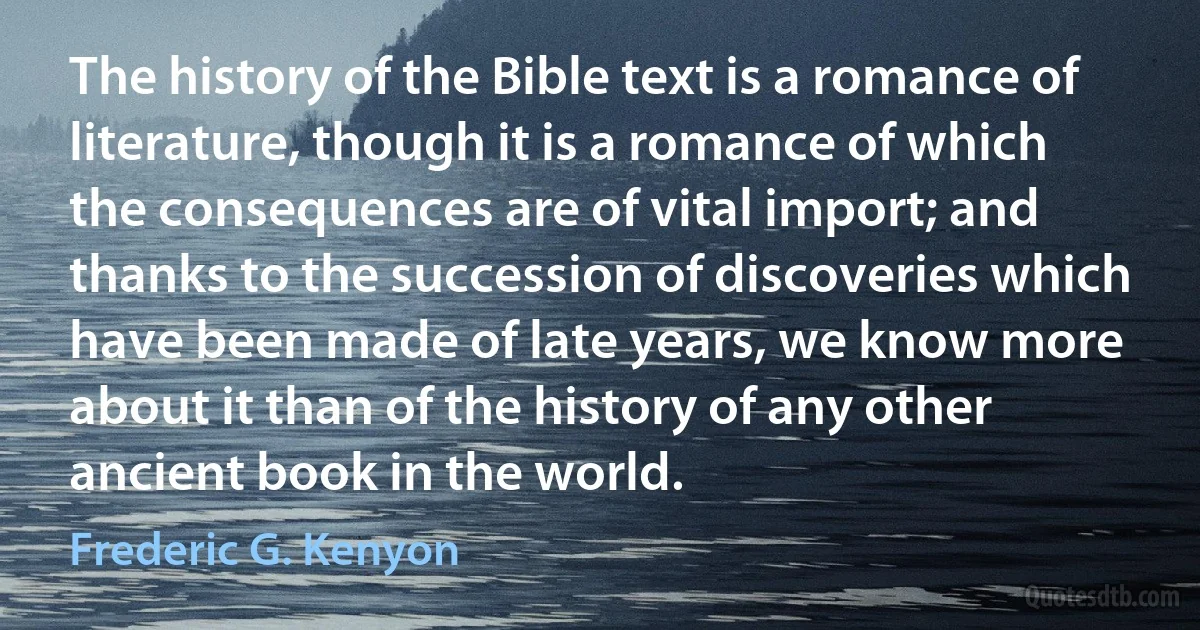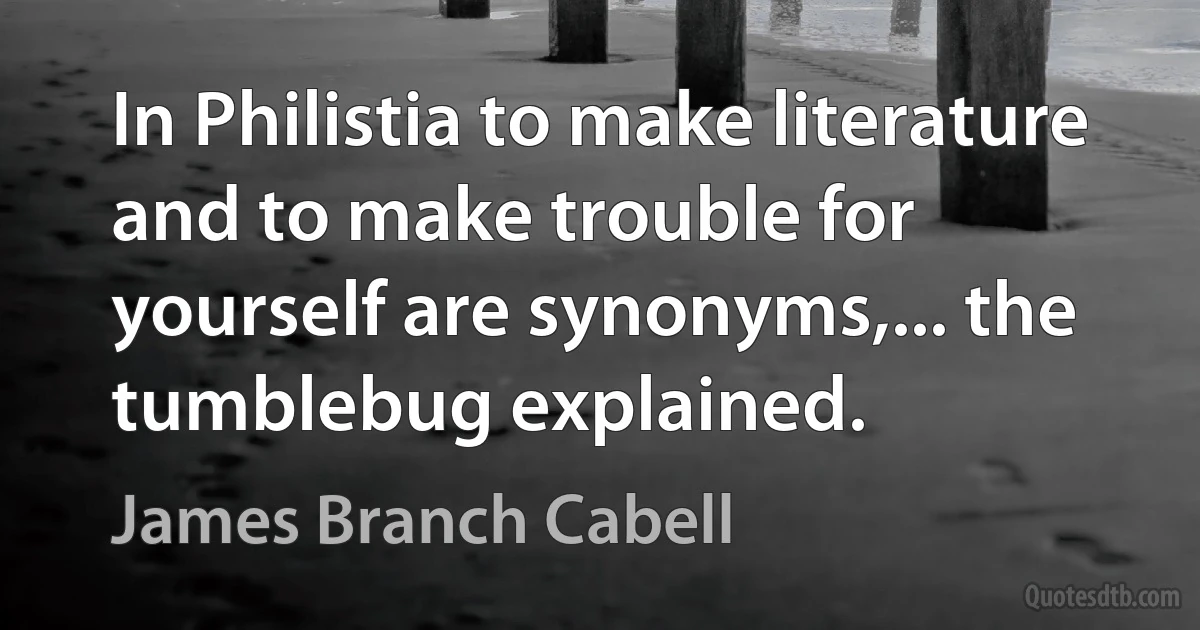Literature Quotes - page 68
I think what happened was the language settled in me much deeper than it settled into people who just can read something once and absorb what they absorb of it. I feel like what I was absorbing was not by any means superficial. And I think I was - from a really young age, I was reading like a writer. I was reading for this deep understanding of the literature not simply to hear the story but to understand how the author got the story on the page...

Jacqueline Woodson
A critical sense of style and of poetic form is not easy to attain, nor is it of first importance for the younger, or, indeed, for any student of Virgil. Wide open to anyone who is willing to learn is the richer knowledge of Virgil as a poet who loved his country and who loved also that humanity which existed before Rome, exists today within ourselves, and will exist long after our own civilization, like that of Virgil's Rome, has become a matter of "ancient history." It is true that the longer one has lived the better one can appreciate a poem which is concerned with life. But the gain that comes to us with the years depends, partly at least, upon the riches we have been willing to extract from literature, which is the experience of other men and women written out. In youth's search for this treasure the Aeneid will be at once a fair haven and a port of departure.

John Conington
Ed walked away from the program feeling fortified and stapled. His brain was buzzing, the way it always did just after Jeopardy! He loaded up the microbus with Atlases and poseidons and headed for Pope County. "I've had it," he sang. "I've had it with puns, alliteration, Russian literature, Italian neorealism, meaningless cross-references, and laundry lists of nonsense. I shall drive without a license, without clothing, without direction, and if I make it to Arkansas, fine, and if I'm running late, if I'm running a numbers game, it doesn't matter, I shall keep on running. Yes, this is the answer. This is the ending. I shall keep on running, because a body in motion tends to stay emotional, and it's better to feel. Pain is better than emptiness, emptiness is better than nothing, and nothing is better than this."

John S. Hall
Oral tradition is really how Chicano literature came to be. I was not exposed to the written word, but I had the greatest teacher. I always tell people that my mother was my inspiration because she was the best chismosa, and she had the best stories. And if anyone taught me about drama, it was my mother because she knew how to tell a story. And my grandfather also told stories. One of the reasons why I waned to be a writer was because I was fascinated by stories of La Llorona, supernatural stories and things like that and I love hearing chisme (gossip)...

Josefina Lopez
Remember that Puerto Rican literature always experienced a kind of shortcoming because there was a moral obligation to write realistically, to dramatize our struggle for independence-our colonial drama. If this was ignored, it became a faulty literature which should be punished with oblivion. Imaginative literature was practically disqualified...

Luis Rafael Sánchez
We live in stormy and unsettled times. Hence we may confer a benefit, not only on ourselves, but on others, by diverting attention from the exciting circumstances of the present day-from the disheartening eccentricities of a literature which meanders in a thousand frivolous directions-to the calm regions where the inner man, self-examined, submits himself to moral treatment. Here our connection with things, our object, our duty, become clear; and, while we quietly separate ourselves from a world which is unable to assure us of anything, we feel that the joy we thought lost again returns, and that a second innocence spreads its clear and tranquillizing light over human existence. The child may amuse himself with childish rhymes. Man should find his recreation in reflecting on his relation to the things of this life. To all has this power been vouchsafed; by all should it be exercised.

Ernst, Baron von Feuchtersleben
A person is not a democrat thanks to his ignorance of literature and the arts, nor an elitist because he or she has cultivated them. The possession of knowledge makes for unjust power over others only if used for that very purpose: a physician or lawyer or clergyman can exploit or humiliate others, or he can be a humanitarian and a benefactor. In any case, it is absurd to conjure up behind anybody who exploits his educated status the existence of an "elite" scheming to oppress the rest of us.

Jacques Barzun
Many fields use patterns in various ways: In music and literature, a pattern is the coherent structure or design of a song or book. In art, a pattern is the composition or plan of a work of graphic or plastic art. In architecture, a pattern is an architectural design or style. In psychology, a pattern is a thinking mechanism that is basic to the brain's operation, helping one to perceive things quickly. In archeology, a pattern is a group of phases having several distinguishing and fundamental features in common. In linguistics, a pattern is the manner in which smaller units of language are grouped into larger units...

Peter Coad
Yes, there was Edgar, whom I starved and hunted until I was tired of it: then I chased him up a back alley one night, and knocked out those annoying brains of his. And there was Walt, whom I chivvied and battered from place to place, and made a paralytic of him: and him, too, I labelled offensive and lewd and lascivious and indecent. Then later there was Mark, whom I frightened into disguising himself in a clown's suit, so that nobody might suspect him to be a maker of literature: indeed, I frightened him so that he hid away the greater part of what he had made until after he was dead, and I could not get at him. That was a disgusting trick to play on me, I consider.

James Branch Cabell
"Hypertext is a representation of the text which escapes and surprises by turns," I wrote. Given the pure unaccountability (it is literally impossible to read all the possible variations of a richly linked hypertext) a hyperfiction writer is always attuned to "how the reader will interpret the literature presented" since its presentation shifts and flows in its composition as well.

Michael Joyce



